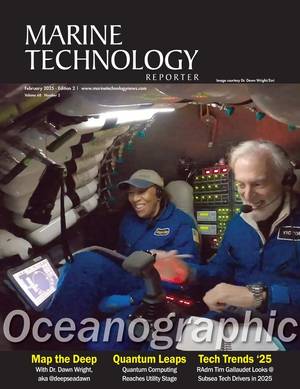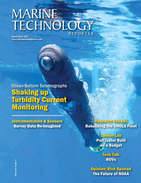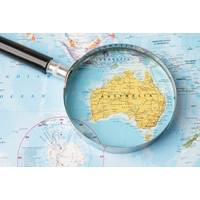
Australian Border Force: Ten Illegal Fishers Found Guilty
including a 50-meter line with hooks and a trawling device. The crew were detained and transported to Darwin for further investigation by AFMA. ABF seized the vessel, and it was destroyed at sea in accordance with Australian law. All fishers were charged with offenses against the Fisheries Management Act 1991 (Cth). The master of the vessel was sentenced to a 27-day term of imprisonment, backdated to the time of apprehension. The remaining crew members were released on $1,000 undertakings to be of good behavior for a period of 2 years. The second case arose from an incident on
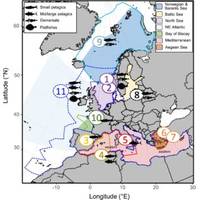
PML: How Climate Change Will Alter European Fish Distribution
opportunities to these goals.The study underscores that the fishing industry can adapt to these changes, but only with forward-looking management strategies. This includes cross-boundary management between countries for stocks that occur across multiple Exclusive Economic Zones (EEZs).Traditional fisheries management frameworks based on historical data and static stock boundaries will become increasingly inadequate as species distributions shift. The authors recommend incorporating climate projections into fisheries management planning and argue that robust projections from regional models can provide
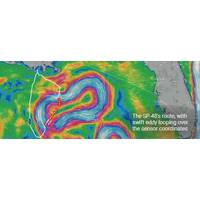
SeaTrac USV Completes GoM Data Harvesting Project
navigate through and hold station in currents exceeding three knots during the data harvesting.The data collected will provide valuable insights into the LCS and its impact on marine life and operations. This data will be used to inform decision-making in areas such as offshore energy development, fisheries management, coastal planning and other ocean interests.“The use of a fully solar-powered USV for a data gathering operation of this scale is a key moment in marine robotics. The Gulf of Mexico presents some of the most challenging ocean currents for any vessel, not least an uncrewed one. One of

PODCAST: “All in the [Gallaudet] Family”
, like applying artificial intelligence algorithms, you need to know how to handle it. So we had a separate strategy just on data.One of the things that we made a priority was the blue economy: advancing ocean data and collection systems for the benefit of the American blue economy. So things like fisheries management and a $200 billion economic impact that it has in the US; or marine transportation and US ports that bring in $5.4 trillion of economic activity, which is a quarter of US GDP. That safe and effective flow of commerce through our ports relies on ocean information like nautical charts, ocean
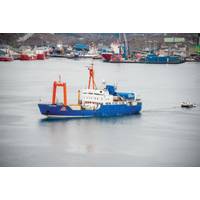
Op/Ed: We Cannot Let the OceanGate Tragedy Put a Pause on Ocean Exploration
research using the submersible to gain valuable technical knowledge for the U.S. Navy’s undersea warfare capabilities. Similarly, for over two decades NOAA’s Office Ocean of Exploration and Research has managed ocean mapping and scientific discovery missions to inform sustainable fisheries management, development of offshore renewable and nonrenewable energy, and protection of economically important natural and cultural resources.For these reasons, I signed an agreement with Victor Vescovo which we described in our previous editorial in the “The Final Word” section of
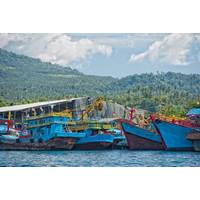
How to Make Indonesia’s Blue Economy More Viable
issues highlight the need for bottom-up participation in creating rules and regulation.Three ways to move forwardThere are three ways on how we can involve and benefit more people in ocean management.The first is to engage stakeholders, including small-scale fishers, in the marine resources and fisheries management decision-making.Indonesia’s political dynamics influence decision-making around the management of marine resources and fisheries. For example, the government aims to increase the economic growth and investments through “blue economy” by, among others, implementing the quota-based
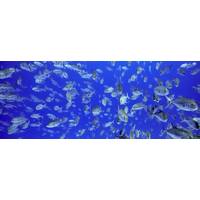
United Nations Adopts High Seas Treaty
the polluter-pays principle as well as mechanisms for disputes. Under the treaty’s provisions, parties must assess potential environmental impacts of any planned activities beyond their jurisdictions.The treaty includes increasing collaboration among regional seas organizations and regional fisheries management organizations.The new agreement will enable the establishment of area-based management tools, including marine protected areas, to conserve and sustainably manage vital habitats and species in the high seas and the international seabed area.The International Chamber of Shipping (ICS) welcomed
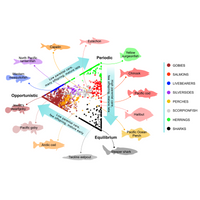
Scientists Can Now Predict Traits for All Fish Worldwide
New research takes a “Robin Hood” approach to provide missing information on data-poor fish species for more effective ecosystem based fisheries management.Scientists can now predict growth, survival, and reproductive strategies for all known fish in the world. The combination of traits a given species has developed to adapt to its niche and environment makes up its life history strategy. The new model uses 33 traits—describing size, growth, reproduction, parental care, lifespan and more— to classify more than 34,000 fish species among three dominant strategy types.
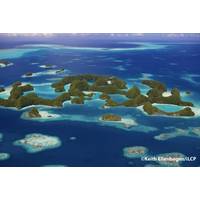
Coral Reef Health Report: Palau’s Coral Reefs - A Jewel of the Ocean
important not only ecologically, but for the people who depend upon the reefs food or income,” said Renée Carlton, Marine Ecologist at KSLOF and lead author on the report. “We saw some warning signs regarding reef fish communities, but are also hopeful that by expanding current fisheries management regulations and establishing more no-take no-entry areas, Palau’s reef fish communities could become some of the best in the world.The commitment Palauan’s have made to conserving their reefs is highly commendable and I hope they’re able to use the findings in this report
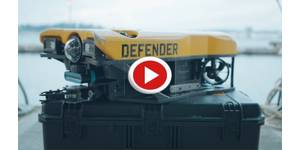

 February 2025
February 2025
